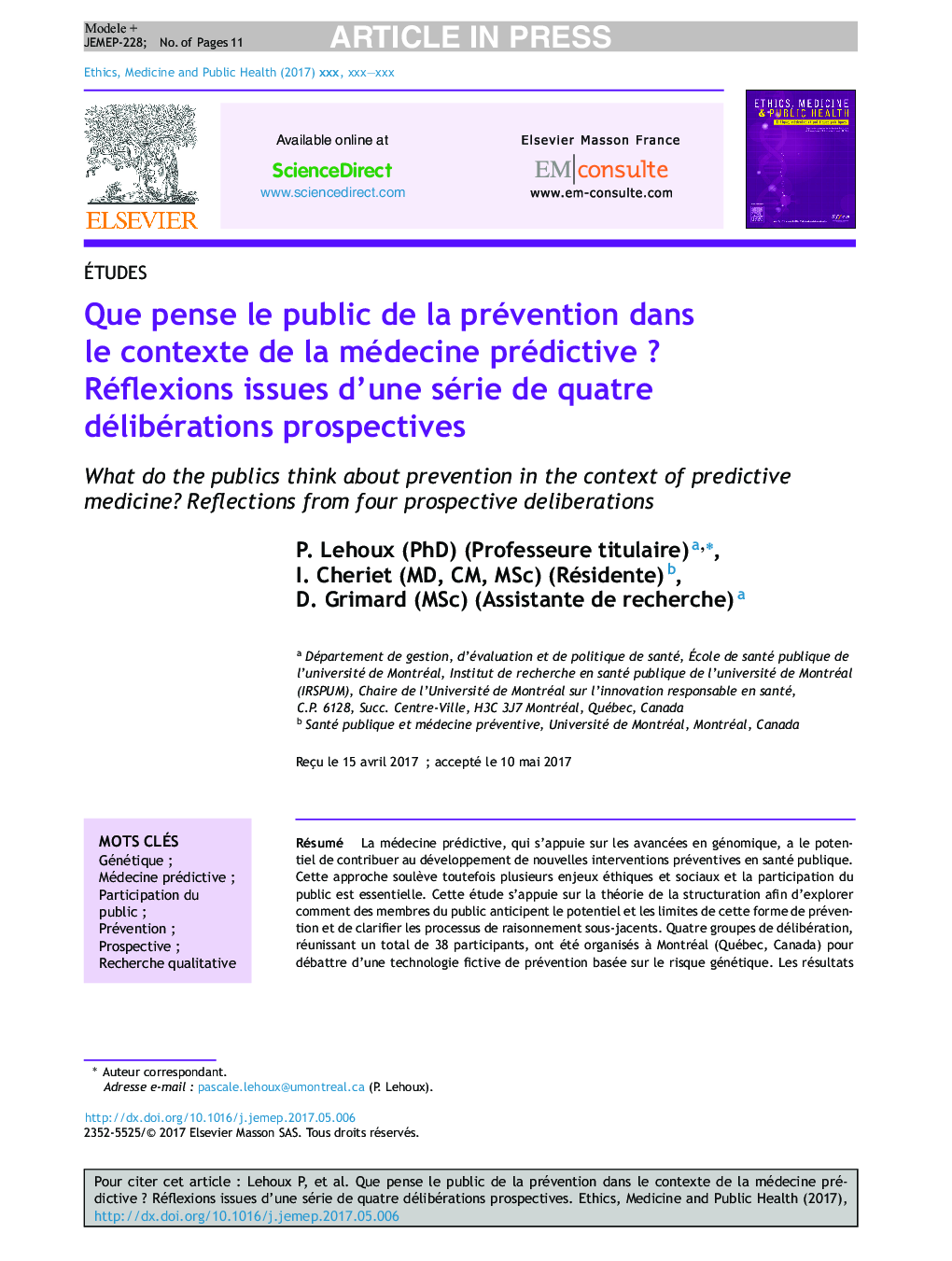| Article ID | Journal | Published Year | Pages | File Type |
|---|---|---|---|---|
| 7531466 | Ethics, Medicine and Public Health | 2017 | 11 Pages |
Abstract
Predictive medicine, which relies on progress in genomics, has the potential to contribute to the development of new public health preventive interventions. Yet, this approach raises several ethical and social issues and public participation is thus essential. This study draws on the theory of structuration to explore how members of the public anticipate the potential and limits of this form of prevention and clarify their underlying reasoning processes. Four deliberative workshops, with a total of 38 participants, were held in Montreal, Quebec, Canada to discuss a fictive prevention technology based on genetic risk. The results indicate that the preventive nature of this cardiac “rectifier” is not interpreted unequivocally by members of the public since it could support both “good” and “bad” prevention. For the participants, its legitimacy varies according to the groups that would be targeted and its potential and limits are contingent upon market dynamics and the role of public authorities. This study contributes to current knowledge by identifying avenues of reflection on the emergence of predictive medicine in public health.
Keywords
Related Topics
Health Sciences
Medicine and Dentistry
Critical Care and Intensive Care Medicine
Authors
P. (Professeure titulaire), I. (Résidente), D. (Assistante de recherche),
